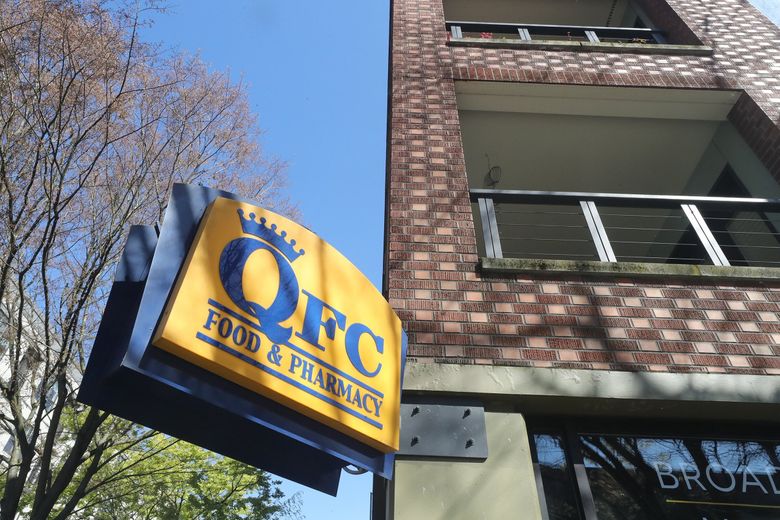
Washington state has asked a judge to block a proposed merger between Kroger and Albertsons, arguing that the $25 billion deal would harm consumers and raise prices in a state where the two retailers account for more than half of all grocery sales.
The suit, filed Monday morning in King County Superior Court, appears to be the first formal move by state or federal regulators to halt the acquisition of Albertson, which owns Safeway and Haggen, by Kroger, which owns QFC and Fred Meyer.
“This merger of the two largest supermarket companies in Washington will severely … limit vital competition that keeps grocery prices in check,” Attorney General Bob Ferguson said at a Monday news conference. “This merger is bad for Washington consumers.” Ferguson is running for governor.
The Federal Trade Commission is also considering suing to stop the merger, but won’t decide until February, according to a report Thursday in Axios. California is reportedly considering a similar lawsuit.
Washington and other states have previously sued over other issues related to the merger, such as a $4 billion dividend to Kroger investors.
In a statement Thursday afternoon, after initial reports of an upcoming lawsuit by Ferguson, a Kroger spokesperson characterized any “attempt to enjoin the [merger] transaction now would be premature as we are engaged in productive discussions with the FTC and state Attorneys General about how this merger will bring lower prices to more of America’s consumers who are still reeling from high grocery prices.”
Ferguson argues that the court should permanently block the merger for two main reasons:
First, a merger between two companies that account for more than half of all grocery sales in Washington will “severely limit shopping options for consumers and eliminate vital competition that keeps grocery prices low,” he said.
According to the suit, Kroger and Albertsons have more than 300 locations in Washington, one of the largest concentrations in the U.S. Two-thirds of those stores are in the greater Seattle area, where the rival companies see each other as their biggest competitors.
“The supermarkets monitor each other’s prices and adjust the cost of products as part of that competitive relationship,” according to the suit. Albertsons’ Seattle-area locations cut prices “to compete with Fred Meyer and QFC, and highlighted in its advertisements products where it offers a better deal,” the suit claims. “The merger eliminates that competition.”
Second, Ferguson warns that a plan by Kroger and Albertsons to preserve competition by selling at least 413 locations, including 104 in Washington, to a third company is “inadequate.”
The prospective buyer, C&S Wholesale Grocers, is primarily in the grocery wholesale business with a small retail operation of 23 locations — none in Washington — and also has little experience operating pharmacies or fueling stations, which are found at many Kroger and Albertsons locations.
“If the merger succeeds, C&S would become the second-largest supermarket operator in [Washington] nearly overnight,” the suit argues.
In Thursday’s statement, Kroger offered a view that opposed Ferguson’s.
The merger “will … mean lower prices and more choices for fresh food for customers and more investments in our communities” and will also “mean workers gain from $1 billion in higher wages, expanded benefits, long-term job security, and a strong unionized workforce.”
The company also warned that “if the merger is blocked, the nonunion retailers like Walmart and Amazon will become even more powerful and unaccountable — and that’s bad for everyone.”
Washington has had mixed luck in the courts in dealing with the merger.
Last January, the Washington state Supreme Court refused to extend a temporary restraining order Ferguson had sought against a $4 billion dividend Albertsons wanted to pay its investors before the merger.
Ferguson had argued that such a large payment could financially weaken Albertsons and lead to closures of locations of Albertsons and Safeway stores.
Seattle Times staff reporter Isabella Breda contributed to this report.
"general" - Google News
January 16, 2024 at 02:29AM
https://ift.tt/Bo5AJNv
WA attorney general sues to block Kroger, Albertsons merger - The Seattle Times
"general" - Google News
https://ift.tt/ncbQJEw
https://ift.tt/40pFNPt
Bagikan Berita Ini














The opinions expressed in reader comments are those of the author only and do not reflect the opinions of The Seattle Times.